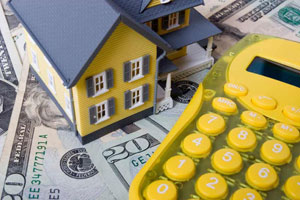What Happens if I Miss a Mortgage Payment?
By Gretchen Wegrich Updated on 7/26/2017 Worried you might miss a mortgage payment? Perhaps you are facing a temporary financial hardship or an unexpected event, such as a job loss or serious illness.
Worried you might miss a mortgage payment? Perhaps you are facing a temporary financial hardship or an unexpected event, such as a job loss or serious illness.
Contact your mortgage lender immediately to discuss your repayment options.
Whether you have already missed one mortgage payment or several, it is important to understand how the choices you make today will impact your financial future.
Read on to learn more about late mortgage payments and how missing a payment can impact your credit score:
Grace period and late payment penalties.
Lenders allow homeowners to pay their mortgage until the 15th of the month without a late penalty. Pay before the last day of the month to avoid a 30-day late notation on your credit report and a reduction in your credit score.
The penalty for a late payment is typically a few percent of the payment amount (check your loan closing documents for the details).
If you are paying near the end of the month and your mortgage payment is nearly 30 days late, use the lending company's website or pay-by-phone service to ensure that the payment is processed on time. Print out or record the payment confirmation number as proof of payment, which is required by the credit reporting agency before they will delete the 30-day late notation from your credit report.
What to know before you skip one or more mortgage payments.
Remember, the consequences of missing a mortgage payment outweigh the short-term gain:
- Borrowers who miss one or two mortgage payments should repay the amount owed as soon as possible to avoid substantial fees including penalties, late charges, and legal fees, which can be added to the loan balance.
- If a borrower misses three or more mortgage payments, he or she may be at risk of foreclosure.
- Even for borrowers only 32 days past due on mortgage payments, lenders may not simply accept the late payment but require borrowers to pay the account up to date immediately. Borrowers should discuss payment arrangements with their loan servicers.
Risk of foreclosure.
Foreclosure is a lender's right to repossess or take ownership of a borrower's home when said borrower stops repaying the mortgage loan. When a borrower forecloses, he or she must vacate the property and relinquish all claim of title to it.
For those whose mortgage debt exceeds the value of the property, lenders may seek a deficiency judgment to reclaim losses taken on the loan.
Depending on the location of the property, foreclosures may typically be either judicial or non-judicial. Judicial foreclosures must go through the court system, while non-judicial foreclosures require no court actions.
Credit damage.
In addition to the financial and legal implications, foreclosures can significantly harm a borrower's ability to secure any credit in the future.
Missing mortgage payments will substantially affect a borrower's credit score, and a foreclosure places a waiting period on the borrower before they can qualify for another mortgage. As such, borrowers should avoid foreclosure at all costs.
Many borrowers who have a minimum of 30% owned equity choose to refinance to prevent foreclosure.
As mentioned, foreclosures cause significant damage to borrower credit scores, and this can adversely affect a borrower in a variety of ways, as credit history and FICO score can be factored into homeowners' insurance premiums, auto insurance premiums, loan and credit card applications, home refinances and more.
Contact your lender.
If you think you'll be unable to make a mortgage payment on time and have no alternatives other than to miss the payment, contact your mortgage lender and let them know the situation. Often, lenders have other repayment plan options that can prevent the payment from showing up as late, though they will be less likely to accommodate borrowers who contact them with a payment that is 90 or 120 days late.
The bottom line is you may still be able to qualify for a mortgage with a missed payment. But if you miss more than one payment you may need to wait at least a year before being able to secure a new mortgage.
Again, it pays to check with a lender and also your mortgage loan officer if you know you’re going to have trouble making a timely mortgage payment.

Didn't find the answer you wanted? Ask one of your own.
-
 Mortgage Banking Specialty Programs in New York
View More
Mortgage Banking Specialty Programs in New York
View More
-
 What Is Joint Tenancy?
View More
What Is Joint Tenancy?
View More
-
 Should I Pay Off My Mortgage Early?
View More
Should I Pay Off My Mortgage Early?
View More
-
 How to Transfer a Mortgage
View More
How to Transfer a Mortgage
View More
-
 How Can I Qualify for the Mortgage Tax Deduction?
View More
How Can I Qualify for the Mortgage Tax Deduction?
View More
-
 What Is a Mortgage Payment?
View More
What Is a Mortgage Payment?
View More
-
 3 Things You Should Know Before You Switch Mortgage Lenders
View More
3 Things You Should Know Before You Switch Mortgage Lenders
View More
-
 Mortgage Glossary
View More
Mortgage Glossary
View More
-
 Online Mortgage Services to Get You the Best Home Loans
View More
Online Mortgage Services to Get You the Best Home Loans
View More

Contributing Authors
Related Articles
Ask our community a question.
Searching Today's Rates...

Featured Lenders
Kat Whitman
Whitman Met, Inc.
Sacramento, CA
Cameron Burke
Vision One Mortgage
Huntington Beach, CA
Lisa Stepp
RBS Citizens
Clifton Park, NY


